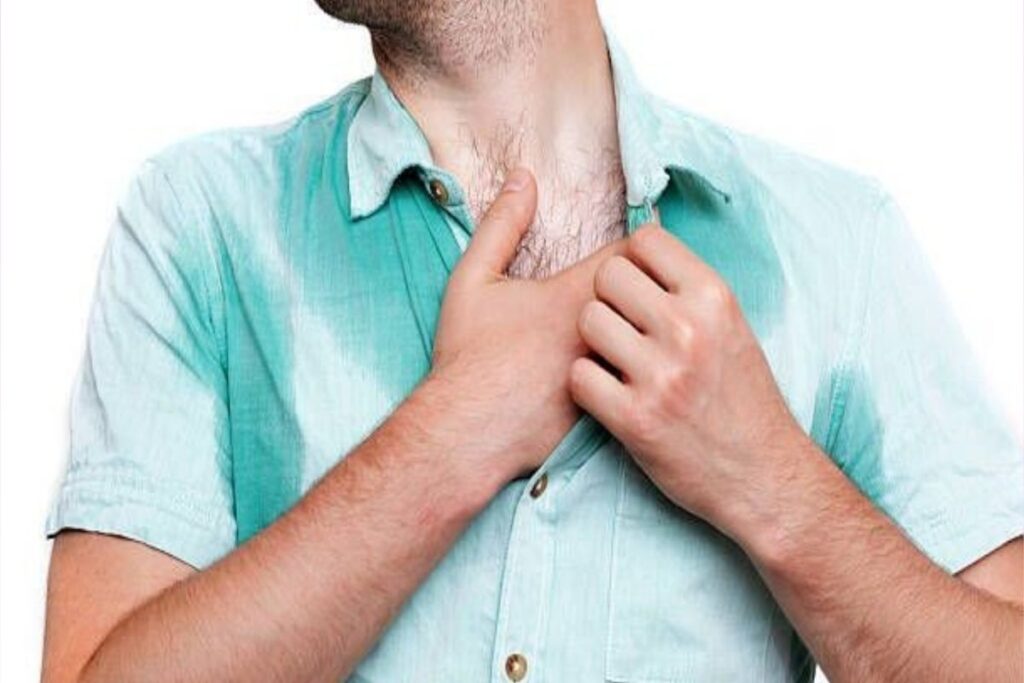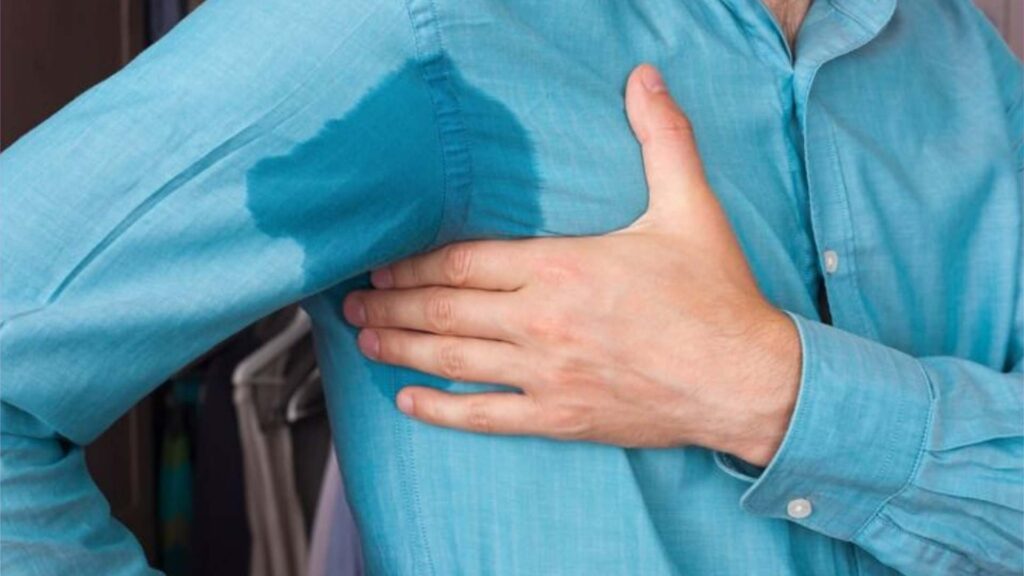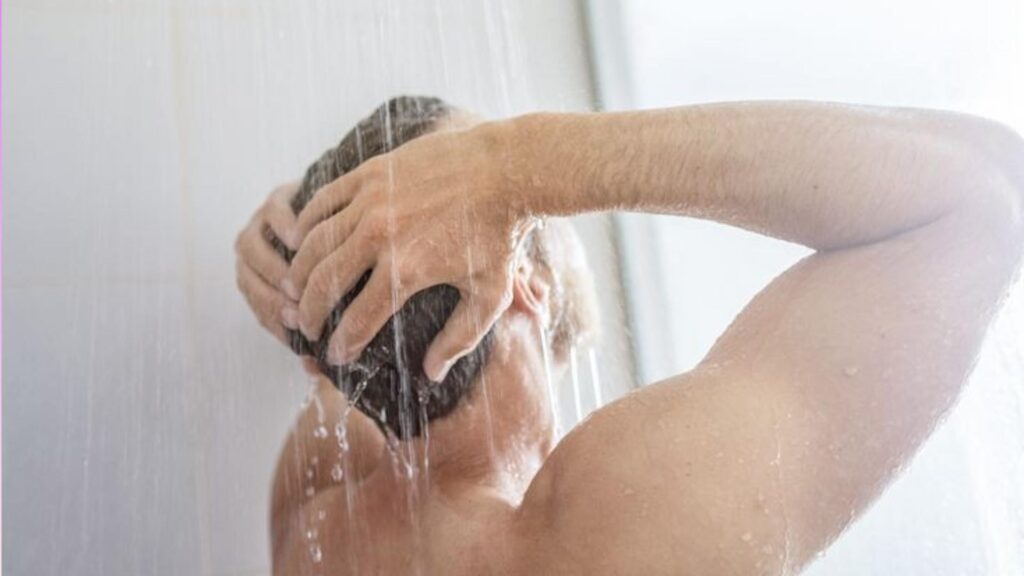
Sweating is a natural process, but when it becomes excessive, managing sweat reduction can be a challenge. Whether you’re dealing with sweaty palms, underarms, or other areas, finding the right solutions for sweat reduction can help you stay fresh and comfortable throughout the day.
Thankfully, expert medical advice and simple lifestyle changes offer effective ways to control this issue.
Which Foods Reduce Sweating?
Did you know that your diet can contribute to sweat reduction? Certain foods like cucumbers, watermelons, and leafy greens help your body stay cool by keeping you hydrated, leading to less sweating. On the other hand, spicy foods, caffeine, and alcohol can increase body temperature and cause more sweat.
Incorporating more hydrating foods into your meals can naturally help with sweat reduction and keep you feeling refreshed. Staying hydrated is key to regulating your body temperature and minimizing sweating. Consuming water-rich foods not only helps keep your body cool but also supports the proper functioning of your sweat glands.
In contrast, heavy and high-sodium meals can cause your body to overcompensate with increased sweating. A balanced diet with low-sodium, water-rich foods is a natural way to control sweat production.
ALSO READ: Stay Cool and Fresh With These 5 Summer Hygiene Tips From Skin Experts
How Do I Stop Sweating in My Private Area?
Sweating in your private area can be frustrating, but focusing on sweat reduction in this sensitive zone is possible with a few adjustments. Wearing loose, breathable fabrics like cotton, maintaining proper hygiene, and using antiperspirants specially designed for the area can all help reduce sweat.

Keeping the area dry and using talc-free powders or moisture-wicking underwear are additional ways to promote airflow and reduce sweating. Ensuring proper ventilation and hygiene is crucial in this area, as sweat buildup can lead to discomfort or even infections.
Regularly changing into fresh clothes, especially after exercise or a hot day, is essential. Consider consulting a doctor if sweating in this area becomes severe or persistent, as it may indicate a medical condition that needs treatment.
Why Am I Sweating So Much?
If you’re experiencing excessive sweating without obvious triggers, it could be related to hyperhidrosis. This condition causes overactive sweat glands, making sweat reduction more difficult without treatment. Stress, heat, and exercise can all trigger excess sweating, but sometimes it happens for no clear reason.
POLL—Do You Support a Single-Payer Healthcare System (Medicare for All)?
Consulting with a healthcare provider can help you address the root cause and develop a personalized sweat reduction plan. In some cases, underlying health conditions like thyroid disorders or diabetes can contribute to excessive sweating.
A doctor can evaluate your symptoms and suggest appropriate treatments, which may include prescription antiperspirants, medications, or more advanced treatments like Botox injections or surgery for extreme cases of hyperhidrosis.
Does Sweating Burn Fat?
Many believe sweating equals fat loss, but while sweating can indicate physical effort, it doesn’t directly result in fat burning. Sweat helps cool your body down, but real fat-burning happens when your body uses stored energy during exercise. Focusing on cardio and a balanced diet leads to actual fat reduction, not just sweat.
However, consistent exercise that gets your heart rate up will promote both fitness and sweat reduction. Although sweating can make you feel like you’re burning more calories, it’s the physical activity itself that leads to fat loss.
WATCH: Try These Shower Hacks for Spa-Worthy Skin, Hair, and Moods
For an effective workout, focus on activities that challenge your cardiovascular system. Intense cardio, strength training, and a healthy diet will give you long-term results for fat-burning and sweat reduction.
Can Antiperspirants Help Reduce Sweat?

Antiperspirants are highly effective in sweat reduction. They work by temporarily blocking sweat glands, stopping sweat from reaching the skin’s surface. For optimal results, apply antiperspirant at night when your sweat glands are less active.
For severe cases, a doctor can recommend stronger prescription options that offer even better sweat reduction. If regular antiperspirants aren’t doing the job, clinical-strength options are available over the counter or via prescription.
These stronger formulas contain higher concentrations of active ingredients like aluminium chloride, which is highly effective at controlling sweat. If antiperspirants cause irritation, consult a doctor to explore alternative treatments or more specific options for sensitive skin.
Natural Remedies for Sweat Reduction
In addition to commercial solutions, natural remedies can contribute to sweat reduction. Drinking plenty of water keeps your body cool while wearing light, loose clothing helps air circulate and reduces sweating.
Taking cool showers can lower your body temperature, and practicing relaxation techniques like deep breathing can help manage stress-related sweating. Herbal remedies like sage tea or witch hazel have been traditionally used to help control excessive sweating.
Sage, in particular, contains tannic acid, which is thought to act as a natural astringent, reducing sweat production when applied topically or ingested as tea.
However, always consult a healthcare provider before starting new herbal remedies, especially if you’re taking other medications. Tackling excessive sweating requires focusing on sweat reduction through lifestyle changes, proper hygiene, and sometimes medical intervention.

Whether it’s adjusting your diet, using an antiperspirant, or exploring natural remedies, small changes can lead to significant improvements.
If you’re dealing with persistent sweating, consulting a doctor for professional guidance on hyperhidrosis may be the key. Prioritizing your overall health and wellness will not only help with sweat reduction but also enhance your overall quality of life.
The Benefits of Ginger for Your Health and Wellbeing
Sean Kingston, Mom, Plead Not Guilty to Fraud Charges of Over $1 Million
Evening Exercise: The Unexpected Key to a Good Night’s Sleep
Heartbreak for Mariah Carey As She Loses Mom and Sister in One Day
